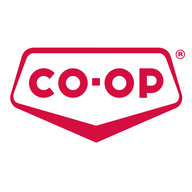
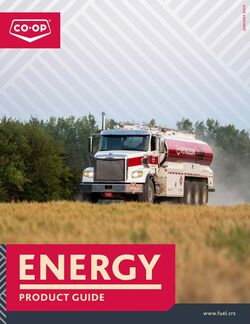
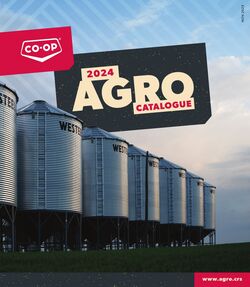


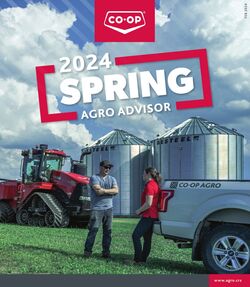







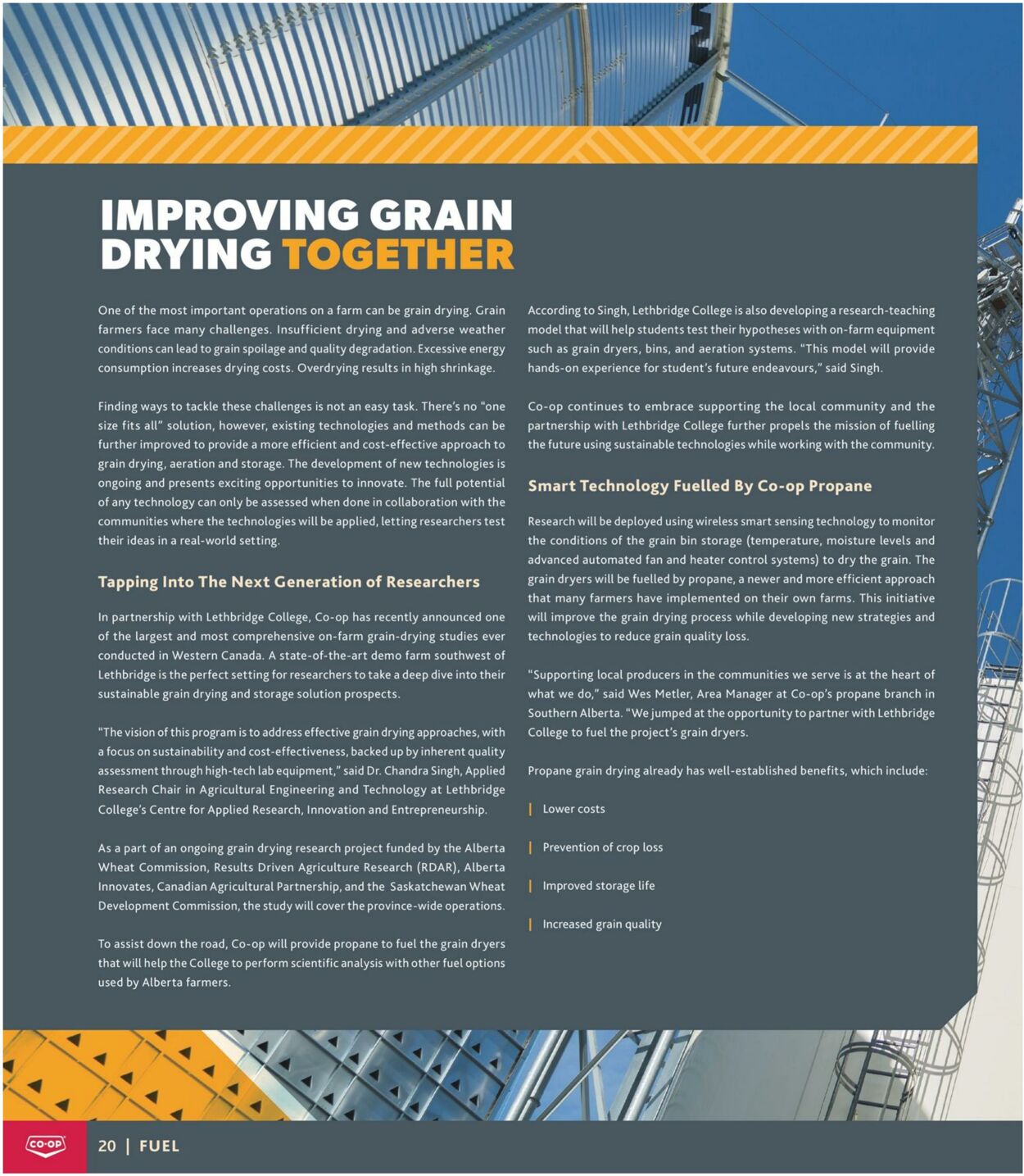
Products in this flyer
IMPROVING GRAIN DRYING TOGETHER OCT CCC ET UTC T CLIS 1 EU farmers face many challenges. Insufficient drying and adverse weather conditions can lead to grain spoilage and quality degradation. Excessive energy consumption increases drying costs. Overdrying results in high shrinkage. Finding ways to tackle these challenges is not an easy task. There's no ‘one size fits all” solution, however, existing technologies and methods can be further improved to provide a more efficient and cost-effective approach to grain drying, aeration and storage. The development of new technologies is ongoing and presents exciting opportunities to innovate. The full potential of any technology can only be assessed when done in collaboration with the CAE LOC CE CC CE CO COTE ER ETES Tapping Into The Next Generation of Researchers DPI EL EL CS CRE ER EC CCE Cut D EU CIC CS conducted in Western Canada. À state-of-the-art demo farm southwest of Lethbridge is the perfect setting for researchers to take a deep dive into their sustainable grain drying and storage solution prospects. “The vision of this programs to address effective grain drying approaches, focus on sustainability and cost-effectiveness, backed up by inherent quality É RCeUe E iCEeLA CEE E EC) Research Chair in Agricultural Engineering and Technology at Lethbridge College's Centre for Applied Research, Innovation and Entrepreneurship. As a part of an ongoing grain drying research project funded by the Alberta Wheat Commission, Results Driven Agriculture Research (RDAR), Alberta Innovates, Canadian Agricultural Partnership, and the Saskatchewan Wheat CEA EE ET AL TI ur ECC CE CUCN LÉO Te A Ce UCI CLS CE ÉTAT CAE CUT A EL ETC CCS DETTE CES According to Singh, Lethbridge College is also developing a research-teaching model that will help students test their hypotheses with on-farm equipment such as grain dryers, bins, and aeration systems. “This model will provide DELTA EN TT ECCE CTI EE CEU-LS CRT LCR CUT ET OU ECC COUT ELEC partnership with Lethbridge College further propels the mission of fuelling CERN En CC OL LI AT Smart Technology Fuelled By Co-op Propane RTE OT TE Eu UC CT CI LI the conditions of the grain bin storage (temperature, moisture levels and advanced automated fan and heater control systems) to dry the grain. The COLA Le EL CE LUCE CUEC that many farmers have implemented on their own farms. This initiative PO EL Le LOC CCI NU ETES CELL CAC EE ARC ICE “Supporting local producers in the communities we serve is at the heart of DANCE CRE AOC EE CC Leu IL) ÉTAIT NOT EC CD AAC CIC College to fuel the project's grain dryers. DÉTECTEURS EC LE EC LINE CS | Lower costs 1 Prevention of crop loss 1 improved storage life M T0 20 | FUEL
| Name | Details |
|---|